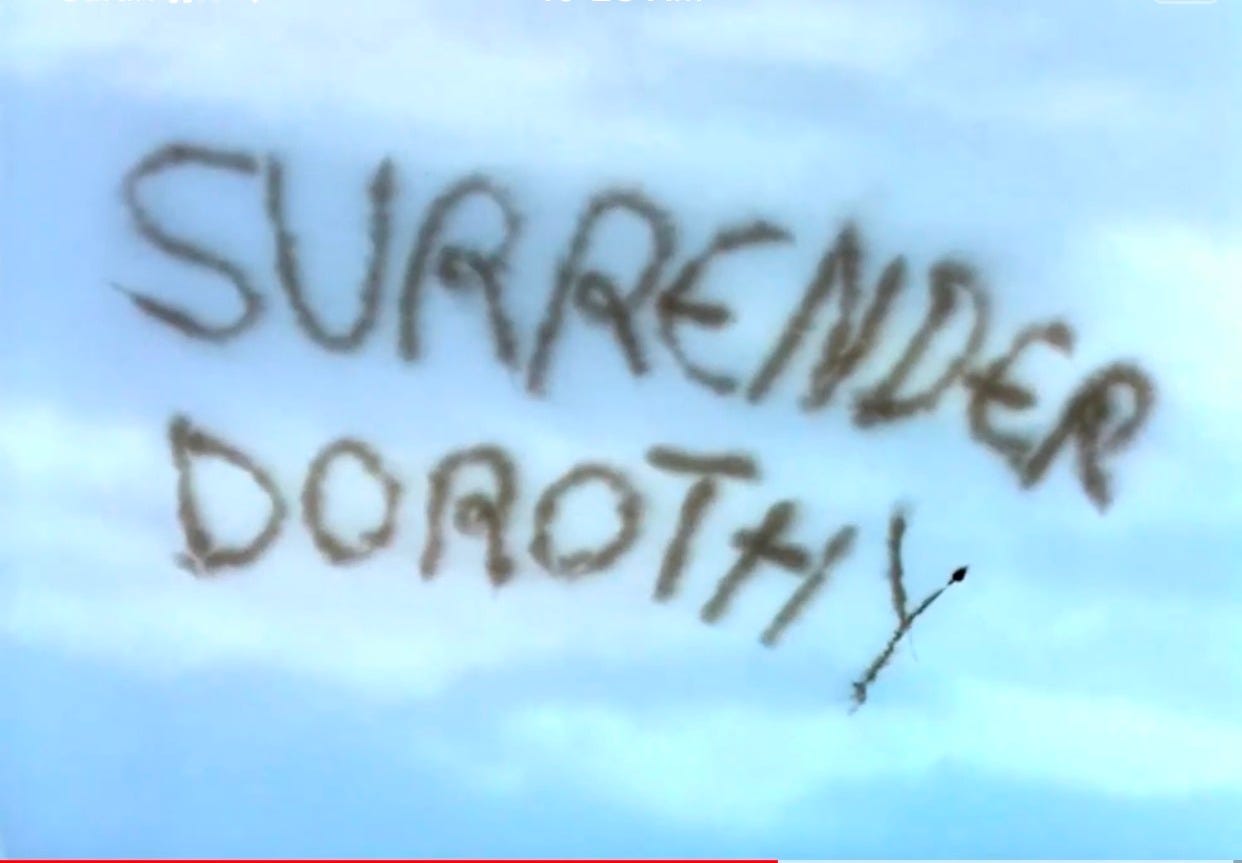
If the USA were not a democracy, or without any kind of modern political system, it would be at war with itself all the time. People would fight over resources, culture, religion. Cities might go to war, as they did in ancient Greece. Regional fiefdoms would emerge, states with kings maybe, even "one to rule them all."
The rhetoric during this US election was very warlike. But if elections were wars, the outcomes would be very different. After the death and destruction of battle, there would be plunder, pillage, rape, prisoners, slaves, land sown with salt.
In war, subjugation ensues. The conquered are expected to give up not only their goods and more or less of their liberty, but also their differences. The subjugated people are expected to, and eventually do, again more or less, adopt the language, laws and customs of their conquerors.
What we don’t have to give up in defeat.
But in democracies, where competition for power is by election, nobody is asked to, or forced to, recant their beliefs, let alone forfeit their goods. In fact, even when democracies go to war with other countries or territories, the war is typically justified as a fight to protect liberty. [Here is a terrific history of Grecian democracy by the Center for Hellenic Studies at Harvard.] And so life goes on pretty much as usual.
That life continues on as usual is especially true today thanks to a bureaucratic state so broad and deep that governments come and go leaving barely a ripple. I’m not saying that changes in law, policy and beaucratic apparatus don’t affect many things; sometimes they do, and quite drastically, but basically individual liberty is preserved.

There is no reason to think that life in the US will not continue on pretty much as it has since Independence. But, for the sake of argument, we might ask what if more were required of the defeated, what if Democrats were required to actually submit.
What will the “left” give up?
The obvious good of democratic “war” (avoiding bloodshed and overt subjugation) has the drawback of allowing the defeated ideology to persist. Four years from now, Democrats get to take another kick at the Presidential can. Two years from now, the Congressional one in the midterms. So now, after an election that looks like it will be, if not a rout, certainly a unequivocal defeat, Democrats have a chance to regroup.
The regrouping seems to be taking different forms. Some are soul-searching, asking where did we go wrong? Others are doubling down, blaming the about 60% of American voters who couldn’t seem to see the righteousness of the Dem’s many social justice causes. Still others are spitting the venom of cancel culture back within their ranks.
Among the soul-searchers, I find it encouraging when someone admits that not everyone cares about the same things they care about, or cares in the same way. They seem to be waking up to what many “old guard” lefties have been saying for some time now; preaching dogma is demeaning and authoritarian, and will not get you where you want to go.
Of the doubledowners, the rhetoric of war continues with calls to refresh, retrench, regroup so as to assail the ramparts again. This spirit of resistance would be admirable if it were properly situated.
It should be pretty clear at this point that the similarities between political parties are much greater than their differences. Everyone is chained to economic GDP, the growth imperative and the protection of personal liberties. No one has the capacity to make the kind of wholesale changes that are needed to curb carbon emissions, to flatten income disparity, to change global trade patterns or halt conflicts that are destroying peoples and countries.
No one will even acknowledge that without significant authority that will create substantial discomfort for all all together, nothing is going to change, or change enough quickly enough.
If the left today genuinely believes that the planet is on fire, that the rich 1% are stealing bread out of the mouths of the 99%, that every war is an unjust, and that populism stands in the way of solutions, then none of the existing political parties is the way forward. Radicals working for change need a model that can actually produce change.
It is difficult to support the idea of more authoritarian rule, even where the need to control in order to change things is desperate. It makes me want to throw my hands up.
What is to be done?
When nothing you can do or even imagine doing provides a way forward, perhaps the answer is to question the very idea of “forward.” Perhaps it is necessary to just stop; stop doing, stop trying, stop resisting, stop always solving problems (especially other people’s problems).
I am not a terribly spiritual person but the idea of “surrender” runs deep in more than one kind of spiritual practice. Buddhism of course, but also Catholicism and I’m sure many others religious practices that value contemplation.
In that spirit:
I surrender to the air.
I surrender to the water.
I surrender to the land.
I surrender to the trees.
To the animals.
I surrender to the insects.
I surrender to the reptiles.
To the fish.
I surrender to my neighbours,
To my my town, my province, my government.
I surrender.
I would welcome your thoughts.









This is the wisdom of Lao Tzu. “With the non-contending of the Taoist, all under heaven cannot contend.”